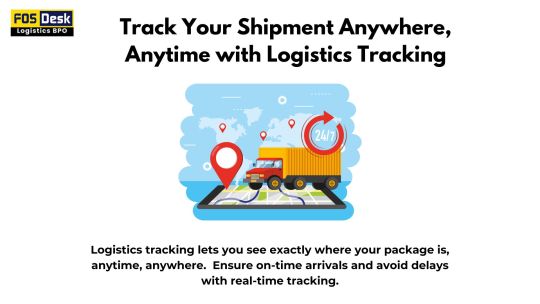#logistics and freight forwarding software
Explore tagged Tumblr posts
Text
Best & userfriendly logistics & freight forwarding software in UAE & India.The logistics software which allows your business to control all your logistics operations
#freight forwarding software#freight logistics software#freight management software#freight software#logistics software#freight transportation software#freight management system#transportation management software#transportation software#ship management software#transportation management solution#logistics management solution#freight shipping software#freight forwarding management system#freight and logistics software#freight forwarding software solutions#freight forwarding management software#transportation and logistics management software#sea freight software#logistics and freight forwarding software#software for freight#logistics shipping software#international freight forwarding software#logistics transport management software#logistics and transportation software#international freight software
0 notes
Text

Automated Document Templates for Logistics Business
Streamline your logistics operations with automated business document templates for quotes, invoices, purchase orders (PO), LRs, and terms & conditions. Our system intelligently loads the right template at the required stage, eliminating repetitive tasks, reducing manual errors, and ensuring consistency. This automation enhances operational efficiency, minimizes staff dependency, improves document accuracy, and accelerates onboarding for new team members, allowing them to work seamlessly from day one. Boost productivity and optimize workflow with our smart logistics document management solution. Visit us:- https://www.quickmovetech.com/freight-forwarding-software/
#logistics software#freight software#freight forwarding software#software for freight forwarding software#warehouse management system#warehouse software#wms
2 notes
·
View notes
Text
5 Ways Freight Forwarding Software Can Boost Your Business's Efficiency

In today's fast-paced logistics industry, efficiency is key to success. One tool that can significantly enhance efficiency in your business operations is freight forwarding software. But what exactly is freight forwarding software, and how can it revolutionize your logistics processes? This blog post will explore the five key ways in which freight forwarding software can boost your business's efficiency, from streamlined communication to cost savings.
Streamlined Communication
Centralized Platform for Communication A major benefit of using freight forwarding software is its centralized platform, for all communication regarding shipments. This ensures that everyone involved, from suppliers to carriers and customers stays informed and connected at all times.
Real-Time Tracking and Updates: The real time tracking features of freight forwarding software allow you to keep tabs on your shipments throughout their journey reducing the chances of misunderstandings and delays.
Reduction of Communication Errors and Delays: By automating communication processes freight forwarding software helps minimize errors and prevents delays caused by miscommunication leading to operations.
Automated Processes
Automated Documentation and Paperwork Handling paperwork manually can be time consuming and prone to errors. Freight forwarding software automates tasks like generating bills of lading and invoices making the paperwork process more efficient.
Integration with Customs Regulations and Compliance: Compliance with customs regulations is essential in shipping. Freight forwarding software integrates, with customs databases to ensure your shipments meet all requirements.
Reduction of Manual Data Entry and Human Error: Automating data entry tasks reduces the likelihood of error improving the accuracy and efficiency of your logistics operations.
Improved Planning and Optimization
Route Optimization and Shipment Consolidation: Freight forwarding software offers features like route optimization and shipment consolidation, enabling you to plan the most efficient delivery routes and reduce transportation costs.
Forecasting and Demand Planning Features: To stay ahead of demand, freight forwarding software provides forecasting tools that help you anticipate market trends and plan your logistics operations accordingly.
Capacity Management and Resource Allocation: By optimizing capacity and allocating resources effectively, freight forwarding software ensures that your business operates at its fullest potential, maximizing efficiency.
Enhanced Customer Service
Transparency and Visibility for Clients: With freight forwarding software, you can provide your clients with real-time visibility into their shipments, fostering trust and transparency in your business relationships.
Quicker Response Times to Inquiries: The ability to access up-to-date information on shipments enables you to respond promptly to customer inquiries, enhancing customer satisfaction and loyalty.
Customizable Reporting and Analytics for Client Insights: Freight forwarding software offers customizable reporting and analytics tools that provide valuable insights into your clients' shipping patterns and preferences, allowing you to tailor your services to their needs.
Cost Savings
Reduction in Administrative Costs: By automating administrative tasks, freight forwarding software reduces the need for manual input, saving time and money on administrative work.
Avoidance of Penalties through Compliance Automation: Compliance errors can result in costly penalties. Freight forwarding software helps you avoid these penalties by automating compliance processes and ensuring regulatory adherence.
Optimization of Resources Leading to Lower Operational Costs: Through efficient resource allocation and capacity management, freight forwarding software optimizes your resources, minimizing operational costs and maximizing profitability.
Conclusion
In conclusion, freight forwarding software is a powerful tool that can transform your logistics operations and boost your business's efficiency in numerous ways. From streamlined communication and automated processes to improved planning and optimization, enhanced customer service, and cost savings, investing in freight forwarding software is a wise decision for any business looking to stay ahead in the competitive logistics industry. So why wait? Upgrade your business today and experience the benefits firsthand!
#FreightForwarding#LogisticsTech#SupplyChainSolutions#BusinessGrowth#freight forwarding software#logistics software
2 notes
·
View notes
Text
0 notes
Text
Saudi Arabia Warehouse Automation Market Share, Size, Technologies, Growth Strategy, Challenges and Future Competition Till 2033: SPER Market Research

Warehouse automation encompasses the implementation of technology and systems designed to enhance and optimize various operations within a warehouse, such as inventory management, order fulfilment, and material handling. This automation can range from basic conveyor systems to sophisticated robotics and software solutions that manage tasks with limited human involvement. The main objective is to improve operational efficiency, lower labour expenses, and increase accuracy in the handling of goods. Automated Storage and Retrieval Systems (AS/RS) are vital in facilitating the swift storage and retrieval of items. As e-commerce continues to expand, the importance of warehouse automation grows, becoming critical for satisfying consumer demands and sustaining competitive advantages in supply chain management.
According to SPER Market Research, ‘Saudi Arabia Warehouse Automation Market Size- By Type, By End User - Regional Outlook, Competitive Strategies and Segment Forecast to 2033' states that the Saudi Arabia Warehouse Automation Market is estimated to reach XX Billion by 2033 with a CAGR of XX %.
DRIVERS:
The swift growth of the e-commerce industry serves as a significant catalyst, driving the demand for effective storage and distribution systems to satisfy the rising consumer expectations for prompt delivery and efficient inventory management. Persistent labour shortages are compelling organizations to implement automated solutions to sustain productivity while decreasing dependence on human labour. The escalating requirement for cold storage facilities, especially within the food and pharmaceutical industries, is generating prospects for specialized automated solutions. Advancements in automation technologies, including robotics, artificial intelligence (AI), and cloud-based warehouse management systems, are enhancing operational efficiency and lowering expenses. A surge in the e-commerce sector is significantly driving the demand for warehouse automation. The warehouse automation market is marked by a highly competitive environment.
RESTRAINTS:
The initial capital needed for warehouse automation technologies, including robotics and automated systems, can be considerable. This financial hurdle may discourage smaller enterprises from embracing these solutions, thereby constraining overall market expansion. There exists a notable demand for skilled individuals who can operate and maintain sophisticated automation systems. The existing shortage of qualified personnel in Saudi Arabia presents a challenge for organizations aiming to implement these technologies successfully. Additionally, employees and management may be hesitant to shift from conventional manual processes to automated systems due to concerns about job security or a lack of familiarity with new technologies. Addressing this resistance necessitates the implementation of effective change management strategies and comprehensive employee training.
Request a Free Sample Report: https://www.sperresearch.com/report-store/saudi-arabia-warehouse-automation-market.aspx?sample=1
The rise of e-commerce during the pandemic prompted a need for enhanced operational efficiency within warehouses. Organizations pursued automation solutions to handle the surge in order volumes and to satisfy consumer demands for quicker delivery times, thereby propelling growth in the warehouse automation industry. The pandemic also resulted in significant disruptions to global supply chains, impacting the availability of essential components and materials required for the implementation of automation technologies. Consequently, businesses aiming to automate their operations faced project delays and increased costs. Although the long-term prospects of warehouse automation remain promising, certain companies displayed hesitance in capital investments due to economic uncertainties and a decline in consumer spending during the pandemic.
The market for Saudi Arabia warehouse automation is dominated by Eastern region because of its support in industrial activities and logistics operations, contributing to the overall growth of the market. Some of its key players are- ABB Ltd, Vanderlande, Toyota Industries Corporation, Murata Machinery, Honeywell International Inc.
For More Information, refer to below link: –
Saudi Arabia Warehouse Automation Market
Related Reports:
Flying Car Market Size- By Product, By Capacity- Regional Outlook, Competitive Strategies and Segment Forecast to 2034 Spark and Glow Plugs Market Growth, Size, Trends Analysis - By Vehicle Type, By Fuel Type, By Spark Plug Type, By Aftertreatment System, By Technology- Regional Outlook, Competitive Strategies and Segment Forecast to 2034
Follow Us –
LinkedIn | Instagram | Facebook | Twitter
Contact Us:
Sara Lopes, Business Consultant — USA
SPER Market Research
+1–347–460–2899
#Automated Sortation Systems Supplier in KSA#Automated Technology in Warehousing KSA#Competitors in KSA Warehouse Automation Industry#Emerging Companies in Warehouse Automation KSA#International Domestic Freight Forwarders in KSA#KSA automated technology software Market#KSA Automatic Guided Vehicle Market#KSA Logistics and Warehouse Automation Market#KSA Logistics and Warehouse Automation Market Report#KSA Logistics and Warehouse Automation Market Share#KSA Logistics and Warehouse Automation Market Trends#KSA Warehouse Automation Industry#KSA Warehouse Automation Industry Analysis
0 notes
Text
Freight forwarding ---Global Business Support
In the high-stakes world of freight forwarding, where time is money and precision is nonnegotiable, software has emerged as the ultimate game-changer. Are you leveraging the right tools to outpace the competition?" How Software Revolutionizes the Freight Forwarding Business: A Global Perspective The freight forwarding industry operates as the backbone of global trade, ensuring goods reach their destinations on time, safely, and efficiently. However, as supply chains grow m complex and customer expectations rise, traditional methods of managing operations often fall short. Enter software solutions—an innovation that transforms freight forwarding into a seamless, scalable, and efficient proce In this blog, we’ll explore how freight forwarding software is driving a paradigm shift in the industry and the global business support features that make all the differences
1. Enhanced Operational Efficie Gone are the days of managing shipments through spreadsheets and manual processes. Freight forwarding software streamlines operations by automating repetitive tasks such as: Document Generation: Automated invoices, bills of lading, and compliance forms save time and reduce errors. Shipment Tracking: Real-time tracking ensures transparency for both businesses and customers. Customs Management: Pre-built compliance modules simplify customs documentation and clearance processes. By integrating these functionalities into a centralized system, freight forwarders can eliminate bottlenecks, reduce manual labor, and boost productivity.
2. Improved Accuracy and Reduced Errors Manual processes are prone to human errors, which can lead to costly delays or compliance issues. Freight forwarding software mitigates these risks through: Data Validation: Ensuring the accuracy of shipment details before processing. AI-Powered Predictions: Anticipating potential risks such as delays, enabling proactive mitigation. Integrated Platforms: Consolidating data from various sources (warehouses, carriers, and customs) into one accurate and reliable system.
3. Scalability for Global Operations In the global trade arena, scalability is critical. Freight forwarding software is designed to accommodate growth by supporting: Multi-Currency and Multi-Language Support: Catering to clients and partners across the globe. Global Carrier Integration: Offering seamless connections with international shipping line airlines, and trucking companies. Regulatory Compliance Updates: Staying ahead of evolving trade regulations in multiple countries.
4. Superior Customer Experience In today’s customer-centric market, providing exceptional service is a differentiator. Softwa empowers freight forwarders to: Offer Real-Time Updates: Clients can track their shipments in real-time, improvi transparency. Streamline Communication: Automated notifications and integrated communication too enhance client interaction. Provide Self-Service Portals: Allowing customers to book, track, and manage shipments independently.
5. Data-Driven Decision Making Freight forwarding software comes with robust analytics capabilities that help businesses make informed decisions. Features include: KPI Dashboards: Visualizing key performance metrics in real-time. Forecasting Tools: Using historical data to predict future trends. Operational Insights: Identifying inefficiencies and areas for cost optimizati 6. Sustainability and Green Logistics Environmental consciousness is increasingly influencing global trade. Freight forwarding software helps businesses embrace sustainability by: Optimizing Routes: Reducing fuel consumption and carbon footprints. Eco-Friendly Reporting: Providing insights into emissions and suggesting greener alternatives. Digitization: Minimizing paper use by automating documentation. Conclusion The freight forwarding industry is evolving rapidly, and staying competitive means embracing the technological revolution. Software solutions not only streamline operations but also provide a strategic edge in managing global complexities, enhancing customer experience, and fostering sustainable practices. Are you ready to transform your freight forwarding business? Invest in the right software today and position your business for unparalleled success in the global market
0 notes
Text

3PShipping.net offers pick, pack, and ship services to streamline your Shopify fulfillment process. They also offer inventory management and online WMS systems to help you track your inventory. Check out 3PShipping.net today!
#3PL logistics#third-party shipping#freight forwarding#warehousing services#supply chain management#distribution solutions#e-commerce shipping#fulfillment services#shipping solutions#logistics management#transportation management#inventory management#order fulfillment#freight management#shipping software.
0 notes
Text

Never lose track of your shipment again! Logistics tracking lets you see exactly where your package is, anytime, anywhere. Get peace of mind and avoid delays with real-time updates. Track your deliveries with ease using popular logistics tracking services.
#transportation#import#export#logistics#freightforwarding#freight forwarding#supply chain management#delivery#pickup#shipment tracking software
0 notes
Text
#freight#freight broker#freight forwarding#freight management#freight software#freight transportation#freight logistics#freight service#freight shipping
1 note
·
View note
Text
5 Ways Consignmate Revolutionizes Freight Management Systems

In today's fast-paced world, efficient freight management systems are crucial for businesses to thrive. Consignmate emerges as a game-changer in this arena, offering innovative solutions to streamline freight operations. Here are five ways Consignmate is transforming freight management systems:
Real-Time Tracking: With Consignmate, businesses can bid farewell to the uncertainty of shipment whereabouts. Its advanced tracking system provides real-time updates on cargo location, allowing businesses to monitor their shipments every step of the way. This feature ensures transparency and enables prompt decision-making, enhancing overall efficiency.
Automated Documentation: Say goodbye to tedious paperwork! Consignmate automates documentation processes, reducing the risk of errors and saving valuable time. From generating invoices to managing customs paperwork, Consignmate simplifies the entire documentation workflow, ensuring compliance with regulatory requirements effortlessly.
Optimized Route Planning: Efficiency is key in freight management, and Consignmate excels in optimizing route planning. Leveraging cutting-edge algorithms, it identifies the most efficient routes, considering factors like distance, traffic, and fuel consumption. By minimizing transit times and costs, Consignmate helps businesses maximize their operational efficiency and profitability.
Integrated Communication: Effective communication is essential for smooth freight operations, and Consignmate facilitates seamless communication across the supply chain. Its integrated platform enables stakeholders to exchange information effortlessly, fostering collaboration and eliminating communication barriers. Whether it's communicating with carriers, suppliers, or customers, Consignmate ensures everyone stays informed and connected.
Predictive Analytics: Anticipating challenges before they arise is crucial in freight management, and Consignmate leverages predictive analytics to do just that. By analyzing historical data and market trends, it forecasts potential disruptions and enables proactive decision-making. Whether it's predicting demand fluctuations or identifying potential bottlenecks, Consignmate empowers businesses to stay ahead of the curve.
With Consignmate, freight management evolves from a daunting task to a streamlined, efficient process. From real-time tracking to predictive analytics, it offers a comprehensive solution to meet the evolving needs of modern businesses.
For More Information
Website : https://consignmate.com/freight-management-system/
Email Id : [email protected]
Phone Number : 1300 271 090
#Logistics management software#Transportation management system#Supply chain optimization#Cargo tracking solutions#Freight forwarding technology
1 note
·
View note
Text
Logistics Management Software in UAE | Freight Forwarding Software
Best & userfriendly logistics & freight forwarding software in UAE & India.The logistics software which allows your business to control all your logistics operations
#freight forwarding software#freight logistics software#freight management software#freight software#logistics software#freight transportation software#freight management system#transportation management software#transportation software#ship management software#transportation management solution#logistics management solution#freight shipping software#freight forwarding management system#freight and logistics software#freight forwarding software solutions#freight forwarding management software#transportation and logistics management software#sea freight software#logistics and freight forwarding software#software for freight#logistics shipping software#international freight forwarding software#logistics transport management software#logistics and transportation software#international freight software
0 notes
Text
How Profitability Control Intelligence Helps Logistics Companies Stay Profitable
Running a logistics company is all about precision, not just in moving goods but also in managing costs and ensuring profitability. One small oversight in a quote or an unexpected expense during job execution can eat into margins. That's exactly why we built Profitability Control Intelligence into QuickMove’s logistics software.
Here’s a closer look at how it works — and why it matters.
Profit Starts at the Quotation Stage
With QuickMove, you can set an Estimated Gross Profit (EGP) when you create a quote. This isn’t just a rough guess — it’s a benchmark that stays with the job all the way through completion.
Once the EGP is locked in:
Accounts can’t raise an invoice for an amount higher than the quote without approval.
Expenses have to stay within the provisional costs that were estimated at the beginning.
In simple terms, this keeps the financial plan tight and under control — no unpleasant surprises when the job closes.
Flexibility When It’s Needed
Of course, logistics isn’t a one-size-fits-all business. There are times when you might need to close a job with a lower margin or even accept a small loss — maybe to maintain a strategic relationship or handle an unexpected situation.
QuickMove gives you that flexibility. You can grant exceptions for specific jobs while keeping full visibility over why and how it happened. So profitability control doesn’t become a bottleneck — it becomes a smart safety net.
Track and Analyze Every Job
Each job or activity — like Origin Services, Destination Services, or Storage — can be categorized based on how it performed against the estimated profit:
More than EGP — Good margin, better than expected.
Equal to EGP — On target.
Less than EGP — Under target, needs review.
Loss — Critical, must be investigated.
This categorization gives you real-time visibility into which parts of your operations are consistently profitable and which ones need attention. Instead of waiting for the end of the month to realize something went wrong, you can fix issues early.
Why This Matters for Your Logistics Business
When you have a strong handle on profitability at the activity level, you can:
Quote smarter for future jobs.
Make data-driven decisions about vendor partnerships.
Identify operational bottlenecks before they become costly.
Strengthen your cash flow and long-term profitability.
In short, logistics job profitability tracking isn’t just about protecting the bottom line — it’s about building a business that can scale without financial blind spots.
Profitability Control Intelligence is one of the ways QuickMove helps logistics companies move smarter, not just faster. If you're looking for logistics software with real profitability control, let’s talk. We'd love to show you how it works in action.
#logistics software#wms#warehouse management system#freight forwarding software#software for freight forwarding software#freight logistics software#warehouse software#freight software#freight forwarder software#freight forwarding system
0 notes
Text

Over the past few years, the trucking industry has slowly been adopting the latest technologies. Gone are the days where companies operated on a paper system. Today, in order for a trucking business to survive they need to invest in software and technology. Freight management software is one that is imperative for trucking companies. Here are a few benefits you get by investing in this software! Reduced Costs
Money is always on a business’s mind and for good reason. While it can be hard for small and medium-sized businesses to take on another expense, freight management software will actually help your company save money in the long run. Freight management software reduces operational costs as well as documents everything so that you can see where you need to reduce spending. Increased Flexibility
Everything is on the go these days, and your freight management software should be as well. With AVAAL’s Freight Management Software you can work from anywhere - cloud-based software allows you to manage your business on the go. They also allow your employees and truck drivers to stay up to date on the move as well. Improved Security
A lot of people think that technology, especially cloud-based technology, is less safe than the traditional paper method. This is far from the truth. AVAAL’s freight management software comes with IP restriction so that you can limit who can connect to the system, which means that all of your data is safely protected. You no longer have to worry about a paper document getting misplaced or seen by the wrong eyes. Environmentally Friendly
We only have one planet, so it’s important that we take care of it. At AVAAL, we try our best to create sustainable solutions to reduce the industry’s environmental impact. Freight management software eliminates wasteful resources such as paper and makes managing freight more effective, reducing unnecessary driving.
Ready to streamline your processes and start saving with our newly released AFM2020? Get Access Now!
AFM2020
AFM2020 was released late 2019 with new features that add simplicity and efficiency. These are the major improvements added: Technology
We have implemented the most advanced technology to make the software faster, more robust, and more flexible.Workflow
Easy to use, smooth interface, and great user experienceSecurity
Strongest and latest security updates have been implementedNew Driver and Carrier mobile apps
GPS Tracking, BOL/POD upload, eSignature, Trip Status Update, Driver Dashboard to check their payments and mileage
#freight management software#freight forwarding software#freight management system#freight management program#freight broker software#trucking dispatch software#tms software for brokers#best tms for freight brokers#freight broker tms#truck load#trucking company#truckinglife#avaal#canada#ontario#truckingindustry#trucking factoring#trucking#logistics
1 note
·
View note
Text
The Evolution Of Supply Chain Management
Supply Chain Management (SCM) is a critical aspect of modern business operations that encompasses the planning, coordination, and execution of activities involved in the flow of goods and services from the point of origin to the final consumer. It involves the management of various interconnected processes, including sourcing, procurement, manufacturing, logistics, inventory management, and distribution
#Cargo365Cloud#logistics software#logistic company in India#global logistics#Shipping Services#freight forwarding company#supply chain software
0 notes